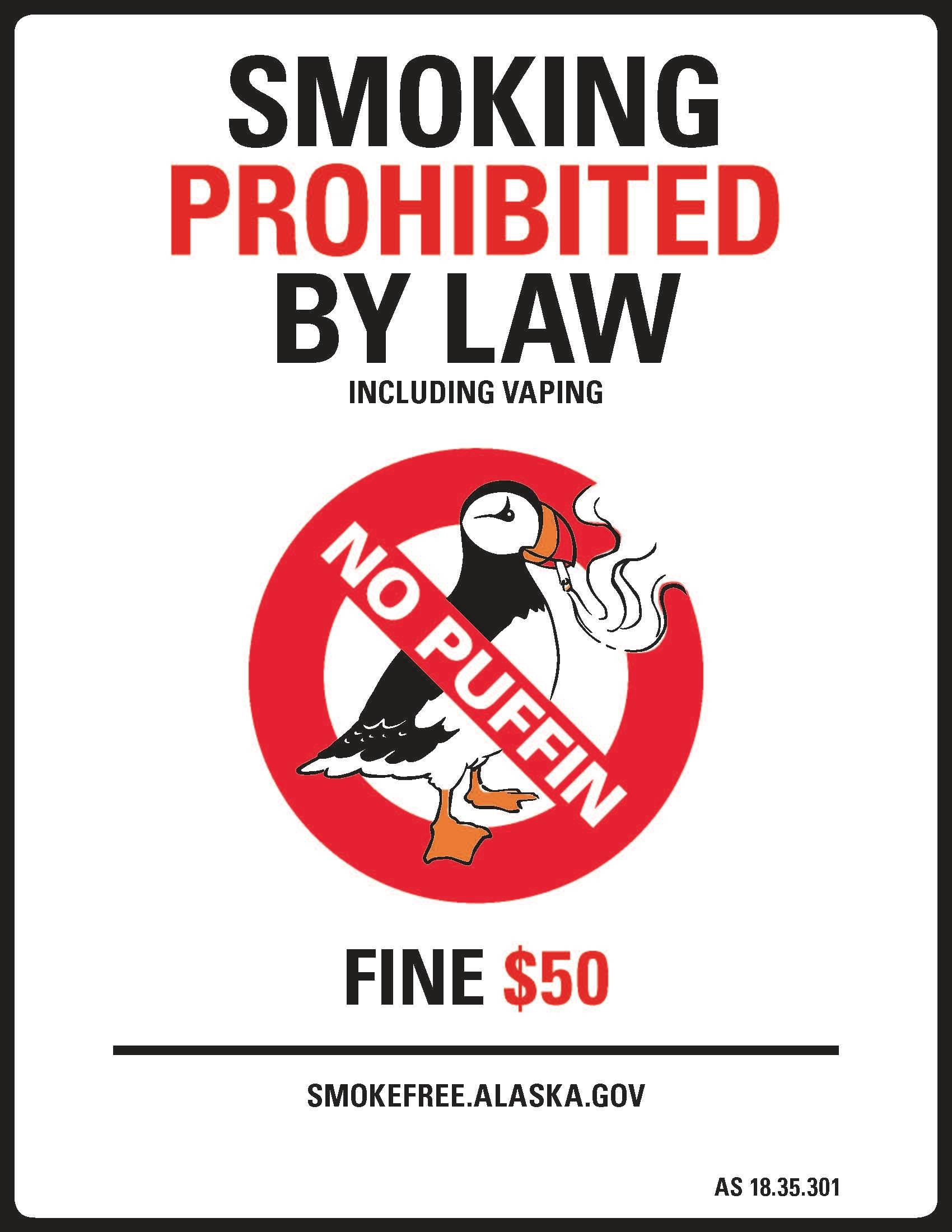As of today, workers and customers of Alaska businesses who smoke or vape will have to take it outside — at least 10 feet away.
A law passed by the Alaska Legislature last spring and signed into law in June by Gov. Bill Walker takes effect Monday. With a few exceptions, all smoking, including vaping or e-cigarettes, is prohibited in places where people shop, eat, drink and work. The law also limits smoking 10- to 20-feet from entrances or a set distance away from intakes for ventilation systems.
Under the new law, smoking is prohibited in any enclosed space in these areas:
• An entertainment venue or sports arena;
• On a bus, taxicab, ferry or other vehicle used for public transportation;
• At a public transit depot, bus shelter or airport terminal;
• At a retail store or shopping center;
• At a place of government or public assembly operated by the state or a muncipality;
• In an office building, office, hotel, motel, restaurant and bar;
• In a common area of an apartment building or multi-family dwelling;
• In a place of employment, including a vehicle;
• At a public or private educational facility;
• At a health-care facility, including residential units;
• In a building or home used to provide child care, even if children aren’t present;
• On a vessel operating as a shore-based fisheries business;
• Outdoors within 10 feet of playground equipment at a public or private school or public park where children are present;
• Outdoors at a place of employment or health-care facility that has declared the entire campus or grounds to be smoke-free;
• Outdoors within 10 feet of an entrance to a bar or restaurant; and
• Outdoors within 20 feet of an entrance, open window or heating or ventilation system intake.
However, smoking is allowed at a retail tobacco or e-cigarette store in a building that is freestanding or, if attached to another building, does not allow smoke to travel into other businesses. Smoking also is allowed in a stand-alone shelter if food or drink is not served and the building is set away from entrances to other buildings. Individuals also may smoke at a private club that has been at the same location since Jan. 1, 2017, and if the club is not licensed to serve alcohol or is not a place of employment.
For the Homer maritime community, smoking also is allowed on a commercial fishing vessel or on a boat used for sport charter fishing.
The law requires businesses to post “no smoking” or “no puffin” signs — an Alaska version with a slash through a cartoon of a puffin smoking.
Kharacters, one of Homer’s last two public bars to allow smoking, will go smoke free on Oct. 1. The Down East Saloon went made the change in July. Kharacters plans to close in an outside porch to be a smoking room.
“A lot of people are thrilled, a lot of people are not thrilled,” said Megan Anderson, a Kharacters employee. “I’m looking at it as a great opportunity to quit smoking because I’m not going to be working in a smoky bar.”
The Alaska Department of Health and Social Services will send out mailers soon to businesses explaining the new no-smoking law, said Sara Clark, deputy program manager for tobacco prevention and control at the Alaska Division of Public Health.
“It addresses the transitions for having a smoke-free worksplace,” she said.
A website, smokefree.alaska.gov, also will have a “frequently asked questions” page, a link to the new law and downloads of signs that can be printed out and displayed. For those wishing to quit using tobacco, the website also has a link for Alaska’s Tobacco Quit Line.
Clark said the new law is a minimum standard for making businesses smoke-free.
“Businesses can, if they want to, and some of them do, put stronger protections in place,” she said.


